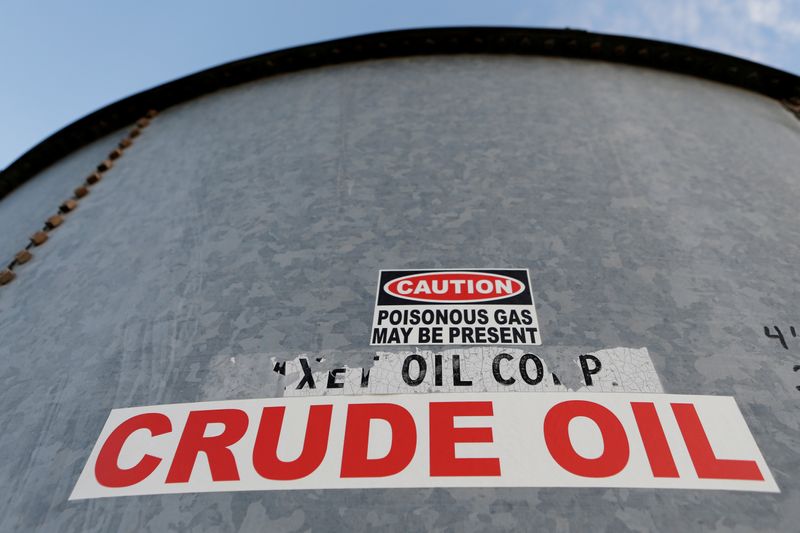By Bozorgmehr Sharafedin
LONDON (Reuters) - Oil prices rose on Tuesday supported by strong economic data from China and the United States, recouping some of the losses from the previous session due to rising OPEC+ supply and infections in India and parts of Europe.
Brent rose 90 cents, or 1.5%, to $63.05 a barrel by 0840 GMT. U.S. West Texas Intermediate (WTI) crude rose 98 cents, or 1.7%, to $59.63.
Both contracts fell around $3 on Monday.
Coronavirus-related deaths worldwide crossed 3 million on Tuesday, according to a Reuters tally, as the latest global resurgence of COVID-19 infections is challenging vaccination efforts across the globe.
"The current situation is fragile, therefore re-visiting the recent highs (of oil prices)... is not imminent," said PVM analyst Tamas Varga.
"Until there are palpable signs of falling infection rates the oil market is likely to remain violent and hectic," he added.
Market sentiment was buoyed as March data showed U.S. services activity hit a record high. China's service sector has also gathered steam with the sharpest increase in sales in three months
In addition, England is set to ease more restrictions on April 12, with the opening of businesses including all shops, gyms, hair salons and outdoor hospitality areas.
New Zealand will allow quarantine-free visits by Australians from April 19, creating a "travel bubble" for the neighbouring nations.
However, new restrictions in most of Europe and rise of infections in India weighed on prices.
"This will likely raise concerns over demand, given that at the moment a large part of the constructive outlook for the oil market is based on the assumption that we see a strong demand recovery over the second half of this year," ING analyst Warren Patterson said.
Those factors helped offset worries about the agreement last week by the Organization of the Petroleum Exporting Countries (OPEC) and allies, known as OPEC+, to bring back 350,000 barrels per day (bpd) of supply in May, another 350,000 bpd in June and a further 400,000 bpd or so in July.
The market's attention is now on indirect talks between the United States and Iran in Vienna to revive the 2015 nuclear deal between Tehran and world powers, which could lead to Washington lifting sanctions on Iran's energy sector.
Goldman Sachs (NYSE:GS) said any potential recovery in Iranian oil exports would not be a shock to the market and full recovery would not occur until summer 2022.

Meanwhile, escalating tensions between Saudi Arabia and India continued. Indian state refiners plan to buy 36% less oil from Saudi Arabia in May than normal, three sources said.